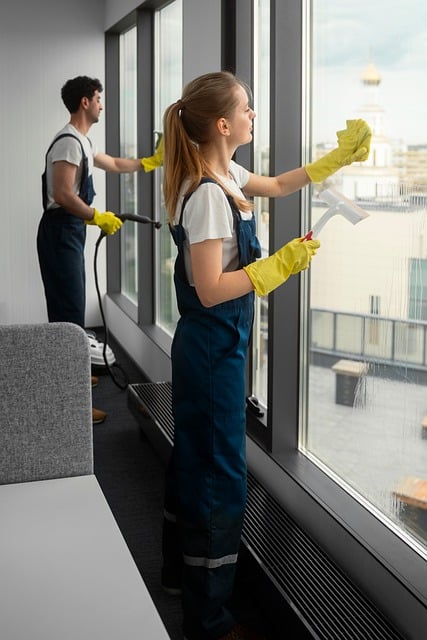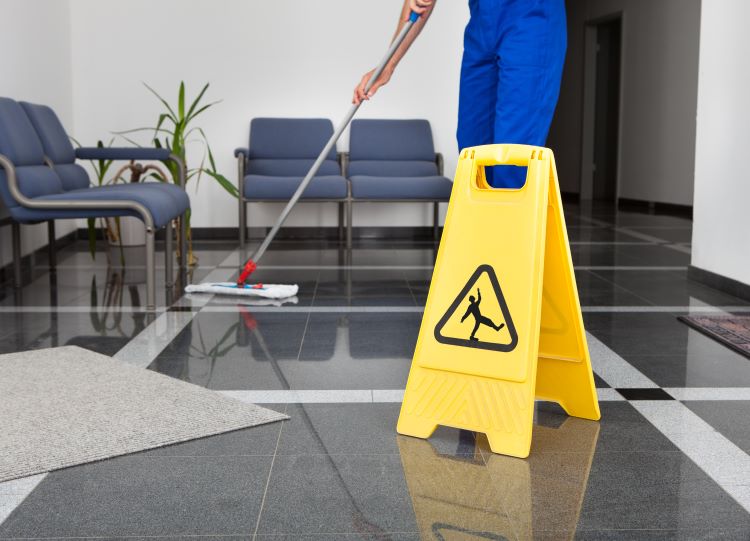Cleaning Services for Workplaces and Homes: Growth and Outlook
The cleaning services industry continues to evolve rapidly, responding to changing workplace environments and residential needs. With increasing emphasis on hygiene and sanitization, particularly following global health concerns, professional cleaning services have gained prominence across various sectors. This article explores the current landscape of cleaning services, their growth trajectory, and future prospects for both commercial and residential markets.

The cleaning services industry represents a vital sector of the economy, providing essential services to businesses, institutions, and homeowners alike. As health and hygiene standards continue to rise, the demand for professional cleaning services has experienced steady growth. This expansion encompasses traditional janitorial work alongside specialized services tailored to specific environments and needs. The industry’s resilience stems from its fundamental necessity across all economic conditions, with recent global health concerns only heightening awareness of proper cleaning protocols and standards.
Types of Services in the Cleaning Industry
The cleaning industry encompasses a diverse range of specialized services catering to different environments and requirements. Commercial cleaning focuses on workplaces, including offices, retail spaces, and industrial facilities, often involving scheduled maintenance during off-hours. Residential cleaning services target homes and apartments, offering regular maintenance or specialized deep cleaning. Specialized niches include post-construction cleanup, disaster restoration, medical facility sanitization, and eco-friendly cleaning options. The industry has also seen growth in window cleaning, carpet and upholstery maintenance, and exterior cleaning services for buildings and public spaces. Each service category requires specific knowledge, equipment, and compliance with relevant health and safety regulations.
Professional Skills and Career Development Pathways
Successful cleaning professionals possess a combination of technical expertise and soft skills that extend beyond the physical aspects of cleaning. Technical competencies include knowledge of different surface types, appropriate cleaning agents, infection control protocols, and equipment operation. Soft skills such as time management, attention to detail, reliability, and customer service excellence are equally valuable. Career advancement opportunities exist through specialized certifications in areas like biohazard cleaning, carpet care, or green cleaning practices. Many professionals progress from entry-level positions to supervisory roles, operations management, or business ownership. Industry associations offer professional development programs that enhance credentials and marketability, while continuing education helps professionals stay current with evolving technologies and methodologies.
Tools and Digital Solutions Transforming the Industry
Technological advancements have revolutionized the cleaning industry, improving efficiency and service quality. Modern cleaning equipment includes high-efficiency vacuum systems, steam cleaners, electrostatic sprayers for disinfection, and automated floor scrubbers that reduce labor intensity while improving results. Digital solutions have transformed business operations through scheduling software, client management systems, and mobile applications that streamline communication between service providers and customers. IoT-enabled smart cleaning equipment can now monitor usage patterns, track maintenance needs, and optimize cleaning routes. Cloud-based management systems allow companies to coordinate large teams across multiple locations, while digital reporting tools provide clients with transparent documentation of completed services and compliance verification.
Market Growth and Economic Outlook
The cleaning services market continues to demonstrate robust growth, with projections indicating sustained expansion in the coming years. Commercial sectors, particularly healthcare facilities, educational institutions, and corporate environments, represent significant growth drivers. The residential segment has also experienced increased demand as busy households outsource cleaning tasks. Regional variations exist in market saturation and service preferences, with urban areas typically showing higher demand for regular professional services. Economic factors influencing the industry include labor costs, regulatory requirements, and consumer spending patterns. Despite occasional economic downturns, the essential nature of cleaning services provides relative stability compared to more discretionary industries.
Sustainability and Environmental Considerations
Environmental awareness has significantly impacted cleaning practices, with growing demand for sustainable approaches. Green cleaning protocols emphasize reduced chemical usage, lower water consumption, and minimized environmental impact. Many service providers now offer eco-friendly options using certified green products that maintain effectiveness while reducing harmful residues. Energy-efficient equipment and microfiber technology help conserve resources while improving cleaning outcomes. Waste reduction strategies include concentrated cleaning solutions, reusable materials, and proper disposal methods for cleaning byproducts. This shift toward sustainability represents both an ethical commitment and a market differentiator, as environmentally conscious clients increasingly prefer services aligned with their values.
Comparison of Cleaning Service Models and Providers
| Service Model | Typical Providers | Key Features | Average Cost Range |
|---|---|---|---|
| Traditional Janitorial | ISS, Sodexo, Jani-King | Comprehensive commercial services, established protocols | £15-30 per hour |
| Specialized Cleaning | ServiceMaster Clean, Rainbow International | Disaster recovery, deep sanitization, specialized equipment | £30-100 per hour |
| Residential Services | Molly Maid, Housekeep, Fantastic Services | Home-focused, customizable packages, vetted staff | £12-25 per hour |
| On-Demand Platforms | Handy, TaskRabbit, Helpling | App-based booking, flexible scheduling, independent contractors | £15-30 per hour |
| Eco-Friendly Services | Green Cleaning Co., EcoCleen | Sustainable products, reduced environmental impact | £18-35 per hour |
Prices, rates, or cost estimates mentioned in this article are based on the latest available information but may change over time. Independent research is advised before making financial decisions.
Future Trends and Innovation Opportunities
The cleaning services industry faces ongoing transformation driven by technological innovation and changing client expectations. Automation and robotics are gradually entering the mainstream, with autonomous vacuum systems and floor scrubbers reducing labor requirements for routine tasks. Antimicrobial surface treatments that provide extended protection between cleanings represent an emerging technology with significant growth potential. Data analytics increasingly inform cleaning schedules and resource allocation, optimizing service delivery based on usage patterns and occupancy levels. Remote monitoring capabilities allow service providers to track cleaning effectiveness and respond promptly to maintenance needs. As the industry evolves, successful businesses will balance technological adoption with the human touch that remains essential to quality service delivery and client satisfaction.
The cleaning services industry continues to demonstrate resilience and adaptability in meeting evolving workplace and residential needs. With increasing emphasis on health, sustainability, and technological integration, professional cleaning services are positioned for continued growth across various market segments. As standards and expectations continue to rise, the industry will likely see further specialization, innovation in service delivery models, and enhanced professionalism across all service categories.




